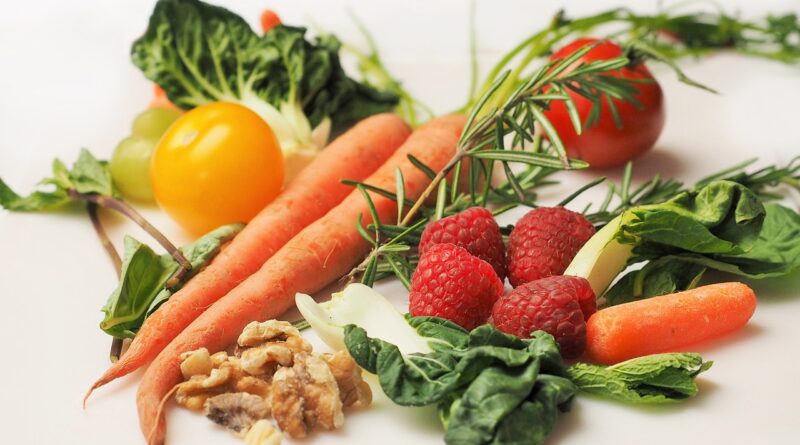Essential Fruits and Vegetables to Eat During Winter in India for Optimal Health
Winter in India brings a refreshing change in climate, but it also demands special attention to our diet to keep the body warm, healthy, and energized. Seasonal fruits and vegetables are not only packed with essential nutrients but also help boost immunity, improve digestion, and maintain overall health during the colder months. Including the right variety of winter produce in your daily meals ensures that you stay nourished and resilient throughout the season. In this article, we will explore the must-eat fruits and vegetables that are best suited for Indian winters and their benefits.
1. Oranges: The Immunity-Boosting Winter Fruit
Oranges are a winter staple in India, known for their high vitamin C content, which is essential for boosting the immune system. These citrus fruits are perfect for combating the common cold and flu that often accompany the winter season. Oranges are rich in antioxidants, which help in reducing inflammation and promoting healthy skin.
Benefits:
Boosts immune function
Supports skin health
Rich in fiber, aiding digestion
Lowers cholesterol levels
How to Eat:
Freshly peeled as a snack
In juices or smoothies
As an addition to salads or desserts
2. Guava: The Fiber-Rich Fruit for Winter
Guava is another popular winter fruit in India, packed with dietary fiber and vitamins like vitamin C, A, and E. Its high fiber content aids digestion, while its antioxidant properties help fight infections. Guava is also known to improve heart health and regulate blood sugar levels, making it an excellent choice for those with diabetes.
Benefits:
Enhances digestion due to its fiber content
Strengthens the immune system
Improves heart health
Supports weight loss
How to Eat:
As a fresh snack
In salads
Blended into smoothies or juices
3. Pomegranates: The Superfruit for Winter Health
Pomegranates are packed with antioxidants, vitamins, and minerals that provide numerous health benefits. The polyphenols in pomegranates help fight inflammation, while their vitamin C content boosts immunity. Additionally, pomegranates are great for heart health and are believed to have anti-cancer properties.
Benefits:
Supports heart health
Reduces inflammation
Helps in controlling blood pressure
Promotes healthy skin
How to Eat:
As fresh seeds in salads or snacks
As juice or added to smoothies
Sprinkled over yogurt or oatmeal
4. Carrots: The Eye-Health Boosting Vegetable
Carrots are rich in beta-carotene, a precursor to vitamin A, which is essential for maintaining good eyesight. In the winter season, carrots are widely available and are known to help boost the immune system, improve skin health, and enhance digestion. Carrots are also rich in antioxidants, which protect the body from harmful free radicals.
Benefits:
Best Diet Foods in India for Weight Loss: A Guide to Healthy and Sustainable Eating
Improves eye health
Supports healthy skin
Boosts the immune system
Aids in digestion
How to Eat:
As raw slices or in salads
In soups or stews
As part of vegetable stir-fries or curries
5. Spinach: The Nutrient Powerhouse for Winters
Spinach is one of the most nutrient-dense leafy greens available during the winter season in India. It is loaded with iron, calcium, vitamins A, C, and K, and antioxidants that promote overall health. Spinach helps in boosting hemoglobin levels, maintaining bone health, and improving vision.
Benefits:
Rich in iron, supporting healthy blood circulation
Strengthens bones with its calcium content
Promotes skin and eye health
Helps regulate blood pressure
How to Eat:
In curries like palak paneer
As part of soups or salads
In smoothies or stir-fries
6. Sweet Potatoes: The Energy-Boosting Winter Vegetable
Sweet potatoes are rich in complex carbohydrates, fiber, vitamins A and C, and antioxidants, making them a fantastic energy source for winter. They help regulate blood sugar levels, support digestive health, and are excellent for improving vision. The natural sweetness of sweet potatoes makes them a delicious and healthy alternative to regular potatoes.
Benefits:
Provides long-lasting energy
Supports healthy digestion
Boosts the immune system
Promotes healthy skin and vision
How to Eat:
Roasted or baked as a snack
Mashed as a side dish
Added to soups or curries
7. Beetroot: The Blood-Purifying Winter Root Vegetable
Beetroot is another winter vegetable known for its blood-purifying properties and ability to improve circulation. It is rich in vitamins, minerals, and antioxidants, particularly nitrates, which help lower blood pressure and boost stamina. Beetroot is also excellent for detoxification and improving skin health.
Benefits:
Improves blood circulation
Supports heart health
Enhances stamina and energy levels
Promotes detoxification
How to Eat:
As part of salads
Blended into juices or smoothies
Roasted as a side dish or added to soups
8. Green Peas: The Winter Protein Source
Green peas are a common winter vegetable in India, providing a good source of plant-based protein, fiber, and essential vitamins. They are low in calories and high in antioxidants, which help in promoting heart health, reducing inflammation, and supporting weight loss. Peas are versatile and can be added to a variety of dishes, making them a winter favorite.
Benefits:
High in protein and fiber
Supports heart health
Promotes healthy digestion
Aids in weight management
How to Eat:
In curries or stir-fries
As a side dish or in salads
Added to soups or stews
9. Apples: The Fiber-Rich Winter Fruit
Apples are available throughout the year, but they are especially good during the winter season in India. They are rich in dietary fiber, antioxidants, and vitamins, making them an excellent choice for maintaining heart health, improving digestion, and boosting immunity. The phrase “an apple a day keeps the doctor away” rings true, especially in winter.
Benefits:
Improves heart health
Aids digestion
Boosts the immune system
Supports weight loss
How to Eat:
As a snack with peanut butter
Added to fruit salads
In smoothies or baked dishes
10. Broccoli: The Winter Superfood
Broccoli is a cruciferous vegetable packed with vitamins, minerals, and fiber. It is particularly rich in vitamin C, vitamin K, and antioxidants, making it an excellent food for boosting immunity and fighting off winter colds. Broccoli also supports heart health, promotes detoxification, and helps regulate blood sugar levels.
Benefits:
Affordable and Useful Mobile Gadgets Under ₹200 in India
Boosts the immune system
Supports heart health
Promotes detoxification
Regulates blood sugar levels
How to Eat:
Steamed as a side dish
In salads or stir-fries
Added to soups or curries
11. Cauliflower: A Winter Staple for Weight Loss
Cauliflower is a versatile vegetable that is low in calories and high in fiber, making it an excellent choice for those looking to manage their weight during winter. It is rich in vitamins C and K and contains phytonutrients that help in detoxifying the body. Cauliflower can be used in a variety of dishes, from simple stir-fries to rich curries.
Benefits:
Aids in weight management
Promotes detoxification
Boosts the immune system
Supports digestion
How to Eat:
In curries like aloo gobi
Roasted with spices as a side dish
As a low-carb substitute for rice or mashed potatoes
Conclusion
Eating seasonally during winter not only ensures that you get the freshest produce but also helps your body adjust to the colder climate by providing essential nutrients to boost immunity, energy, and overall health. By incorporating a variety of winter fruits and vegetables like oranges, carrots, spinach, and sweet potatoes into your diet, you can stay healthy and energized throughout the season. The richness of winter produce in India offers a range of flavors and nutritional benefits that can enhance your meals while promoting good health.




